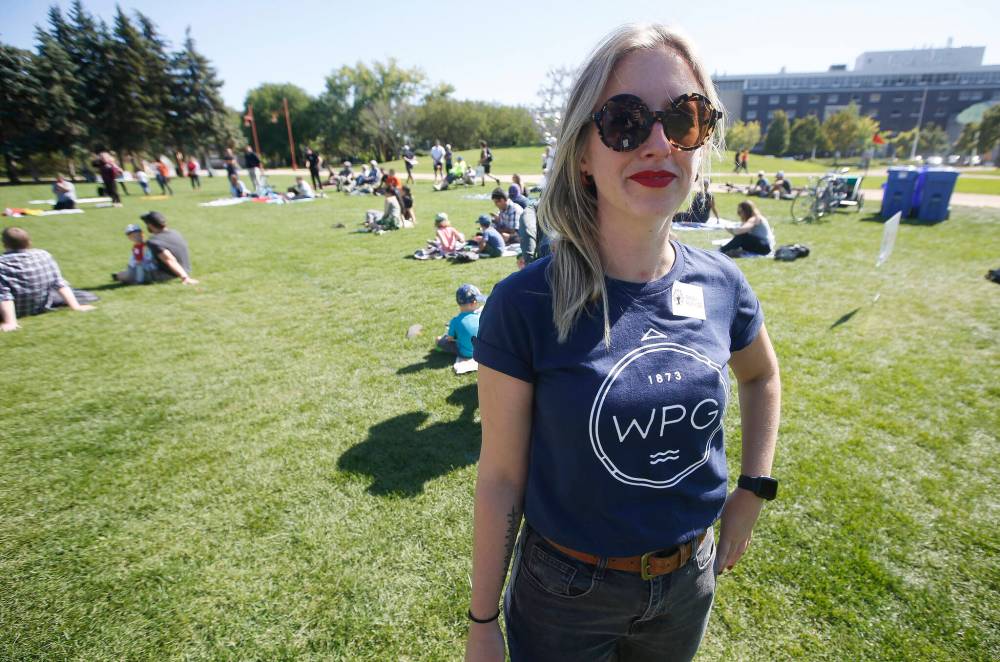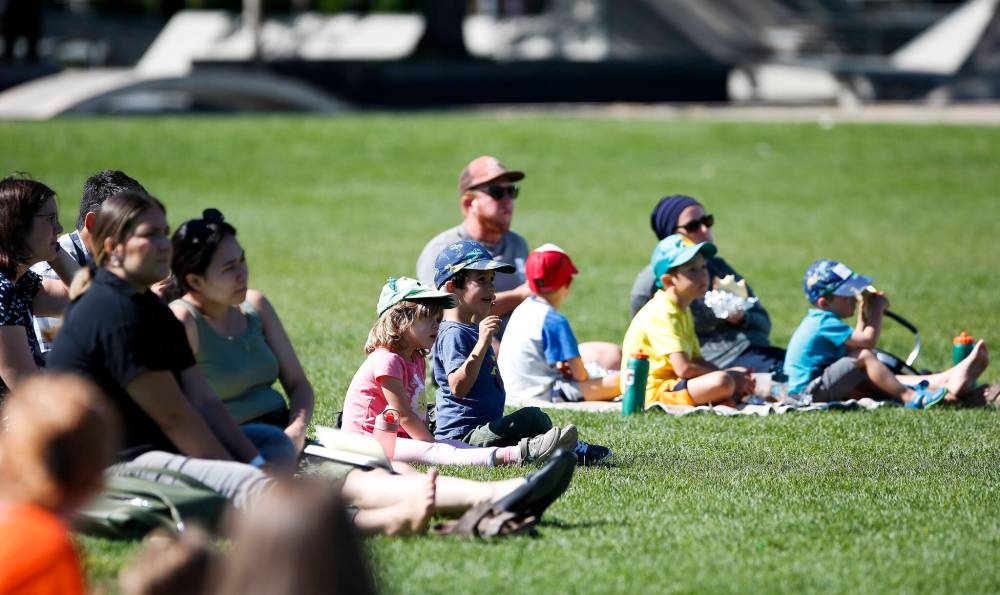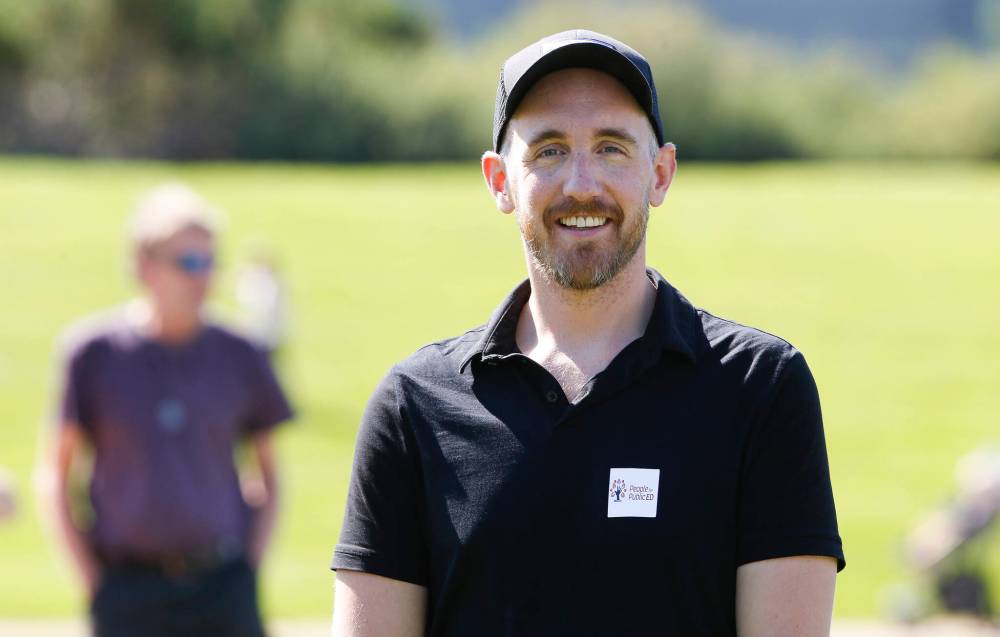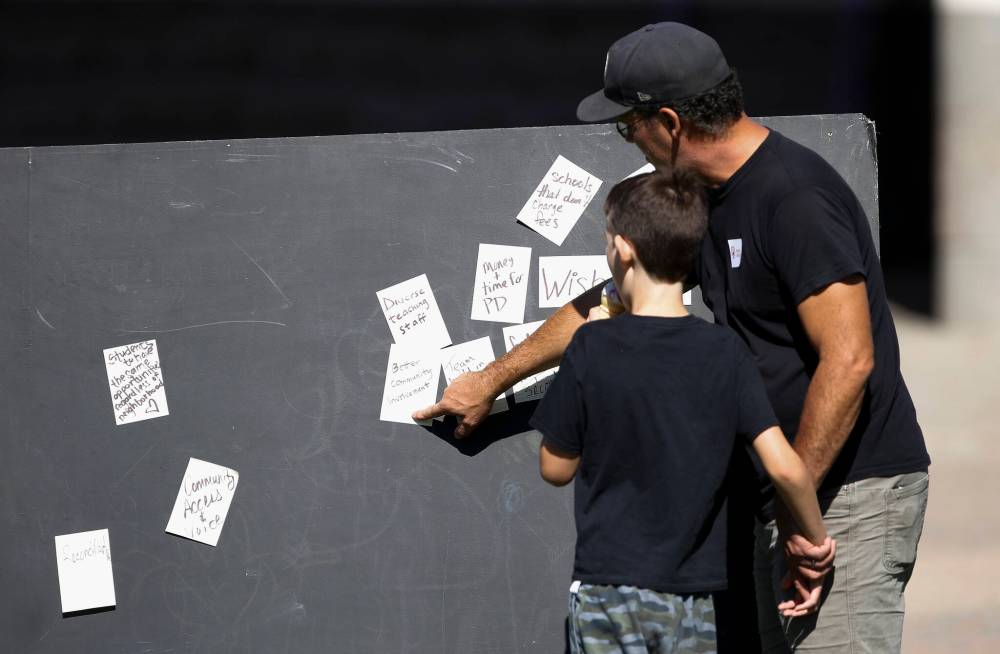‘Schools shouldn’t be run by businesses’
Group speaks out against underfunding public education, move to privatization
Advertisement
Read this article for free:
or
Already have an account? Log in here »
To continue reading, please subscribe:
Monthly Digital Subscription
$0 for the first 4 weeks*
- Enjoy unlimited reading on winnipegfreepress.com
- Read the E-Edition, our digital replica newspaper
- Access News Break, our award-winning app
- Play interactive puzzles
*No charge for 4 weeks then price increases to the regular rate of $19.00 plus GST every four weeks. Offer available to new and qualified returning subscribers only. Cancel any time.
Monthly Digital Subscription
$4.75/week*
- Enjoy unlimited reading on winnipegfreepress.com
- Read the E-Edition, our digital replica newspaper
- Access News Break, our award-winning app
- Play interactive puzzles
*Billed as $19 plus GST every four weeks. Cancel any time.
To continue reading, please subscribe:
Add Free Press access to your Brandon Sun subscription for only an additional
$1 for the first 4 weeks*
*Your next subscription payment will increase by $1.00 and you will be charged $16.99 plus GST for four weeks. After four weeks, your payment will increase to $23.99 plus GST every four weeks.
Read unlimited articles for free today:
or
Already have an account? Log in here »
Hey there, time traveller!
This article was published 11/09/2022 (1184 days ago), so information in it may no longer be current.
Winnipeg teacher Katie Hurst dips into her own pocket to pay for supplies for her students, while many of her colleagues prepare applications for financial grants on their own time.
Due to budget shortfalls, she has seen Manitoba schools increasingly look for private donations or introduce student fees — putting more pressure on parents already dealing with rising costs — to keep some programs or services running.
Hurst and fellow educators who attended a picnic at The Forks on Sunday afternoon worry the Progressive Conservative government’s “underfunding” of public education is part of a movement toward privatization within the system.

JOHN WOODS / WINNIPEG FREE PRESS
“Public schools are public institutions, and we shouldn’t have to rely on private funding or fundraising,” said Katie Hurst, co-organizer of the event and teacher, at a People For Public Education picnic at the Forks on Sunday.
“Public schools are public institutions, and we shouldn’t have to rely on private funding or fundraising,” said Hurst. “I think the steps this province is taking are steps toward the privatization of the public education system, and we should be concerned about that because schools shouldn’t be run by businesses.”
About 70 people attended the event, the first to be organized by People for Public Education, to challenge the province to provide “consistent and substantive” funding through public sources.
The group, which says it is non-partisan, formed after the Manitoba K to 12 Action Plan was released in April. Its members include teachers, academics and parents.
Those who attended the picnic expressed opposition to private-public partnerships in public education, and raised concerns about how the province plans to fund schools when the education property tax is phased out.
Teacher Justin Fraser said education is “continually being defunded,” and operational funding has not kept up with the pace of inflation.
He wants to know what the government’s plans are.
“They haven’t said. If it’s privatization, come out and say it,” he said. “I think the people of Manitoba would have a lot to say about that.

JOHN WOODS / WINNIPEG FREE PRESS
People listen to speakers at a People For Public Education picnic.
“I don’t think Manitobans want to privatize education. I think that’s the PC plan.”
Fraser, too, has noticed schools increasingly relying on private donations and funding, or increasing student fees for everything from lunch supervisors to activities such as music and sports.
It puts students in less affluent areas and struggling families at a disadvantage, he said.
“Students are coming to school hungry. You can’t learn on an empty stomach,” said Fraser, who also pays for supplies out of his own pocket.
Sitting on lawn chairs or on blankets spread out on the grass in front of the CN Stage, the audience listened to speakers who raised concerns about the province borrowing cash to provide property education tax rebates, privatization of the public sector and the impact of funding cuts or freezes on classrooms.
“As funds are reduced, the pressure is on teachers and school boards who are on tighter and tighter budgets,” said Hurst.
If class sizes become larger, it usually means teachers have less one-on-one time with students, she said.

JOHN WOODS / WINNIPEG FREE PRESS
“Students are coming to school hungry. You can’t learn on an empty stomach,” said Justin Fraser, co-organizer of the event and teacher, who also pays for supplies out of his own pocket.
A handful of NDP and Liberal MLAs attended the picnic to support the group’s calls.
NDP MLA and education critic Nello Altomare (Transcona) called on the province to invest more in education.
He accused the PCs of “starving” the public education system and challenging school boards to “do more with less” funding.
He noted People for Public Education’s concerns about privatization.
“We don’t want to go down that road,” he said.
Liberal Leader Dougald Lamont (St. Boniface) said he shares the group’s concerns about “further” privatization.
He’s concerned rising fees are putting an additional burden on parents, and he worries disadvantaged students and families are falling behind due to government underfunding.

JOHN WOODS / WINNIPEG FREE PRESS
Event attendees look at a “Wishing Wall” during the People For Public Education picnic.
“I’m rare in that I think property taxes are a very fair way to pay for education, especially commercial property, because everyone has an interest in investing in education,” said Lamont.
The province did not provide a comment before press time.
chris.kitching@freepress.mb.ca
Twitter: @chriskitching
As a general assignment reporter, Chris covers a little bit of everything for the Free Press.
Our newsroom depends on a growing audience of readers to power our journalism. If you are not a paid reader, please consider becoming a subscriber.
Our newsroom depends on its audience of readers to power our journalism. Thank you for your support.




